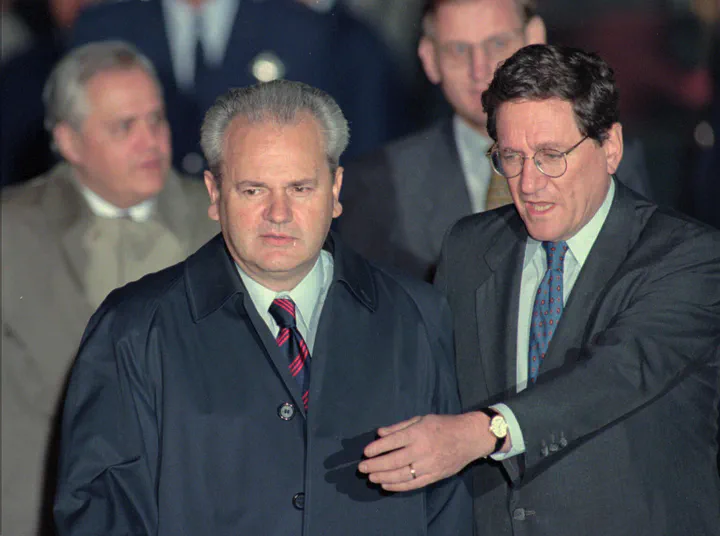Coercive Mediation in Internationalized Conflicts
 Richard Holbrooke mediates the Dayton Agreement in 1995
Richard Holbrooke mediates the Dayton Agreement in 1995
This book project examines what happens when third-party mediators use their external military or logistical support to push conflict parties into peace agreements.
While this form of coercive leverage can bring warring sides to the negotiating table and even result in formal agreements, these settlements often collapse quickly because the pressure that led to them rarely lasts. Drawing on the Peace Observatory dataset covering mediation in armed conflicts from 1989 to 2023 and in-depth case studies on Angola, Darfur, Bosnia, and Yemen, this book shows how mediators who simultaneously support one side in the conflict can impose agreements, but often at the cost of long-term peace. Instead of resolving underlying conflict issues or building mutual trust, these imposed settlements are often superficial, with conflict parties signing simply to placate their patrons. By unpacking the power dynamics of coercive mediation, this book challenges optimistic views about the role of military-backed mediators and offers a sobering look at how external support can undermine the very peace processes it is meant to enable.